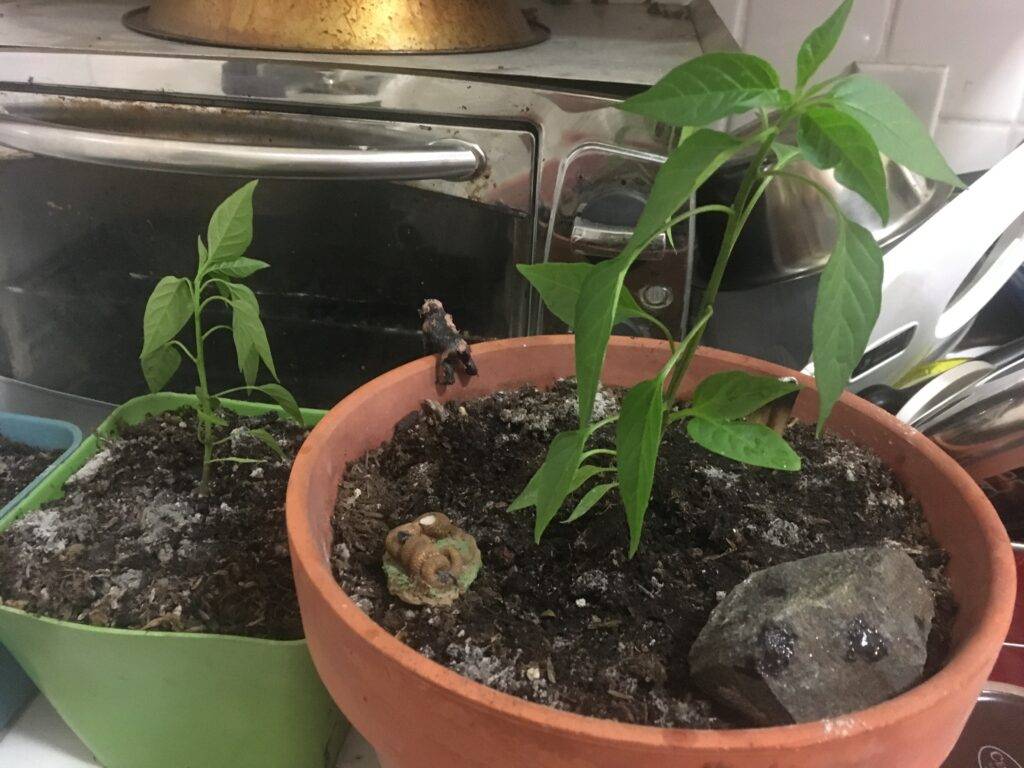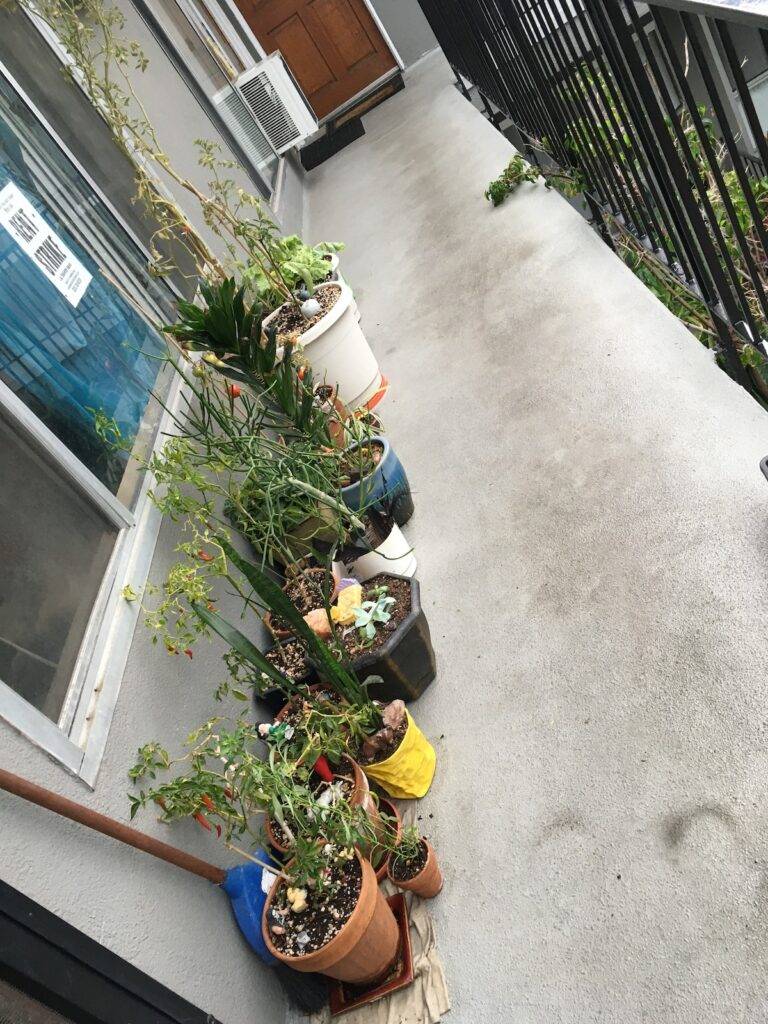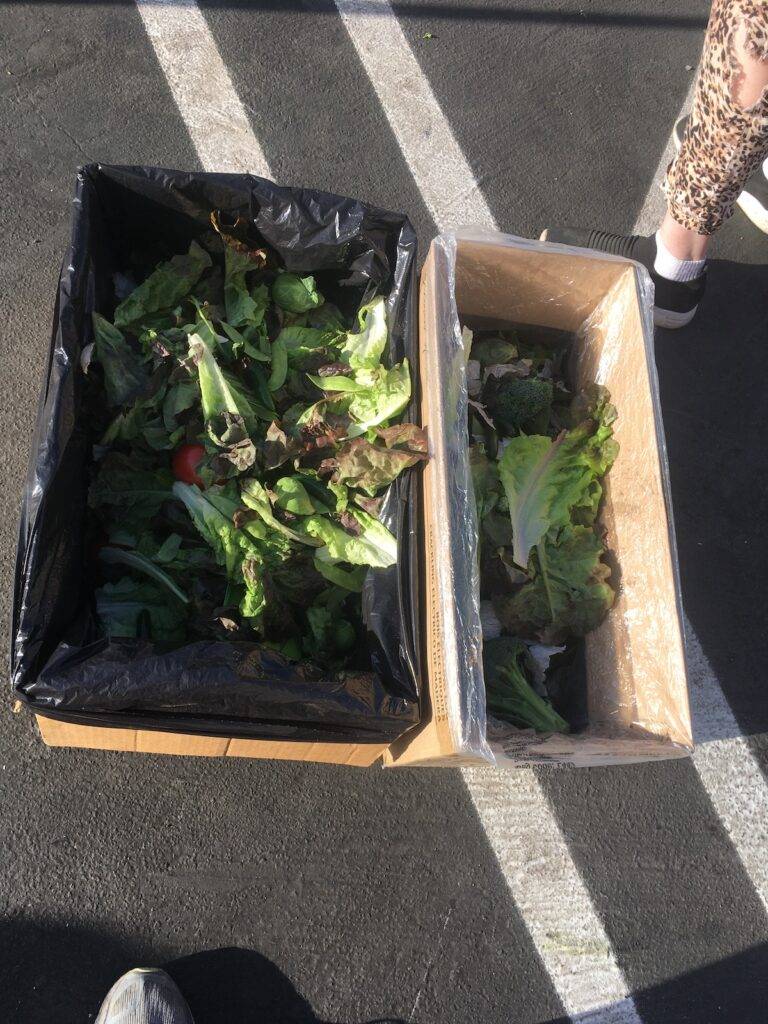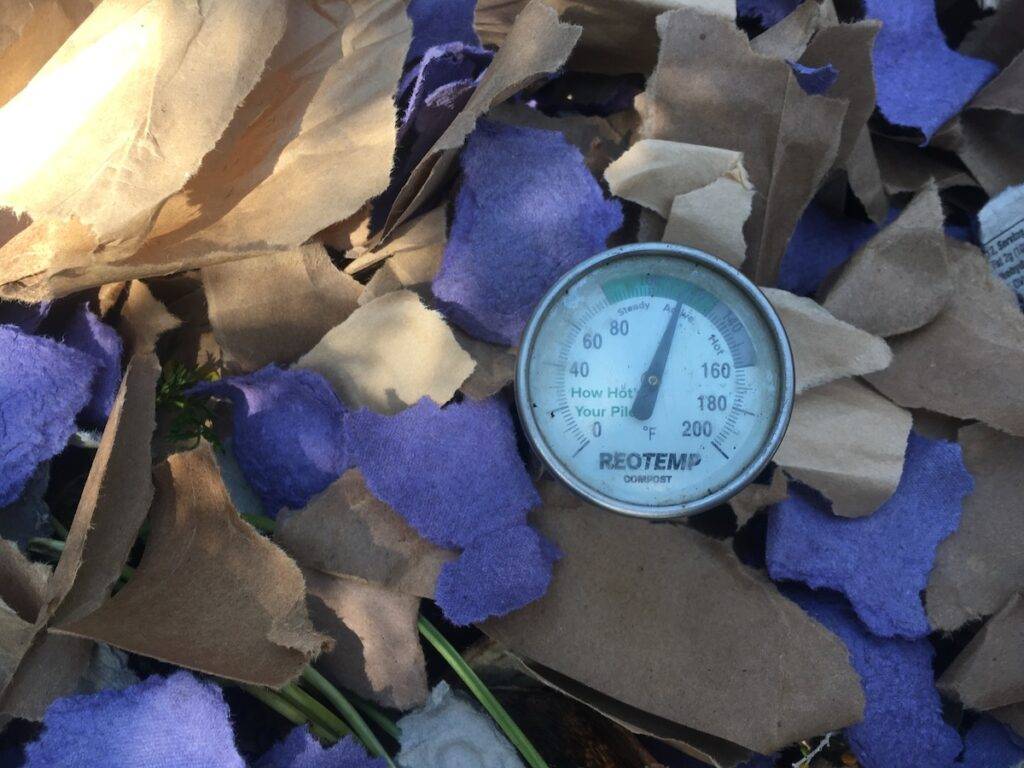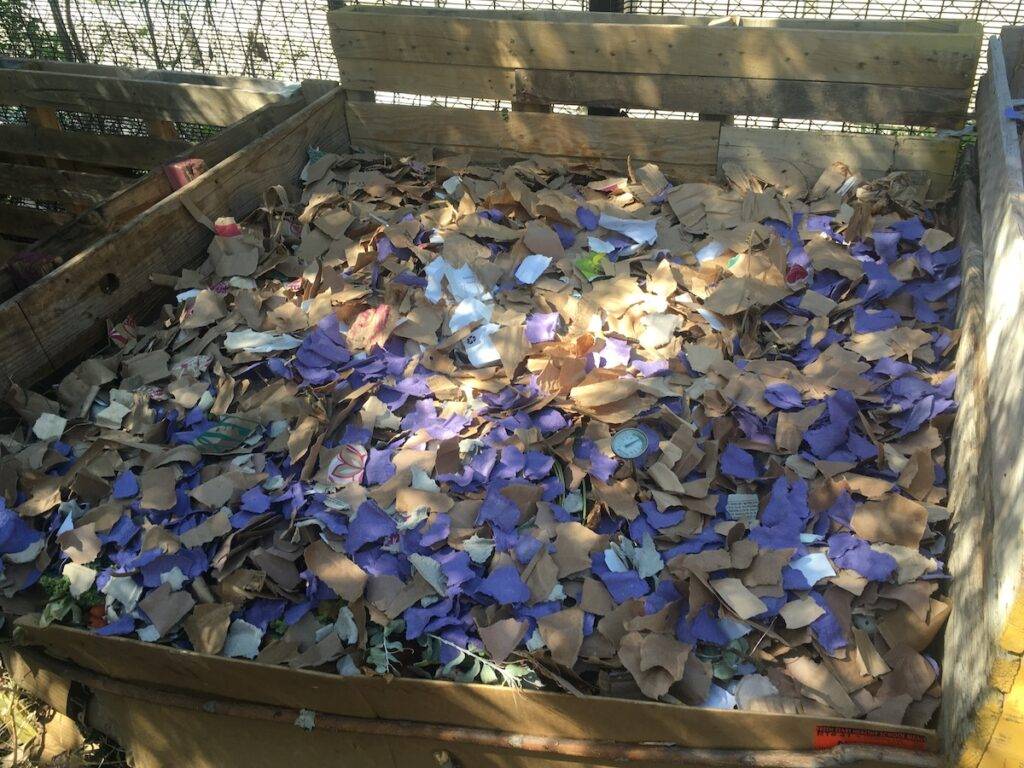How rescuing bees and feeding the soil rescues me.
I pick up a struggling bee with no hesitation, knowing full well that it can sting me, but likely won’t. If it’s living out its last days, it’ll be happier on my flowering basil. The basil, which grows alongside the peppers, lettuce, and other members of my little garden family growing outside the door of my Los Angeles apartment, feeds me — not just when I want a salad, but also when I can no longer take this life of rushing, panicking, and worrying about an unsure future.
I lay the bee atop a flower and carry on with my day. Bee rescue has become an increasingly common part of my life. Sometimes struggling bees hitch a ride on my dog’s leash, and it’s my great honor to act as their chaperone to the safety of the nearest flower.
These moments remind me of my childhood. I’d be outside riding my bike and would notice a struggling bug. I’d stop and bring other bugs near the struggler in hopes that they’d call bug 911, imagining a tiny ambulance arriving to take away the roly poly, and feeling glad to have played an important role in assuring its wonderful life post-rehabilitation.
I loved playing in the dirt, the smell of damp soil, the feel of it under my fingernails while helping my grandpa plant his yearly crops in the backyard. I would try to remember not to rub my eyes when we’d pick hot peppers, inevitably forget, and then run to my grandma with red eyes drowning in regret. She’d tell me to put my head over the sink and wash my eyes out, praying for a lesson learned.
I was labeled a “moody kid.” I experienced unpredictable manias sometimes filled with paranoia and delusions that kept me awake for weeks or months, and depressive episodes where I couldn’t bear the thought of leaving my bed. My stuffy child psychiatrists didn’t help. Diagnoses ranged from ADHD to depression, none of them correct. In my early 20s, yet another psychiatrist finally hit the nail on the head with a diagnosis of Bipolar Disorder. Medication didn't alleviate my rough, gyrating feelings, but I hit on something that did — the great outdoors. Having a yard has become my biggest life goal. Given my experience with capitalism, I’ve come to terms with the fact that I may never have a yard, but I’ve developed alternatives like my little apartment garden.
Like so many people, I found that my mental health suffered during the pandemic. I lost all of my jobs but discovered several organizations seeking volunteers to hand out food to those in need, and I signed up. In the course of this work, we’d inevitably throw out a significant amount of rotting or expiring food. A crate or two of moldy tomatoes, some broccoli about to turn, stinky cauliflower that already had — all would go straight into the dumpster. As late night infomercials say, “There’s gotta be a better way!”, and I was determined to find it. At the same time, my at-home garden wasn’t enough to help me with my compounding anxiety and increasing mood swings, so I found a community garden where I could play in dirt outside of clay pots. While I was swinging tools and sweating out my worries, the idea struck me: I could take the discarded food and bring it to the community garden for compost!
Next time I had a pile of food destined for landfill, I instead covered my car seats in plastic and loaded up my Toyota Yaris. I drove my putrid-smelling car to the garden, hauled the compost uphill in a wheelbarrow, and chopped it up.
This weekly routine became my new therapy, and it continues to this day. It keeps me in the moment, grounded, one with the earth. Chopping up all this squishy stuff lifts the weight of my worries off of my sweaty shoulders. The work is cathartic, keeping intrusive thoughts at bay. And while my Bipolar Disorder isn’t cured, and I’m certainly not saving the world, I am feeding microorganisms and contributing to soil nutrition, helping to nourish new food that will feed a neighborhood.
My community garden now takes in literal tons of rotting food every month, and knowing that this little group of gardeners can do so much helps me find the world less daunting. I am fed by the grounding and soothing nature of playing around in dirt that was a potato six months ago, by seeing pollinators happily feasting off the flowering plants growing from that old-food-turned-soil, and by knowing that it all will continue well beyond me.


